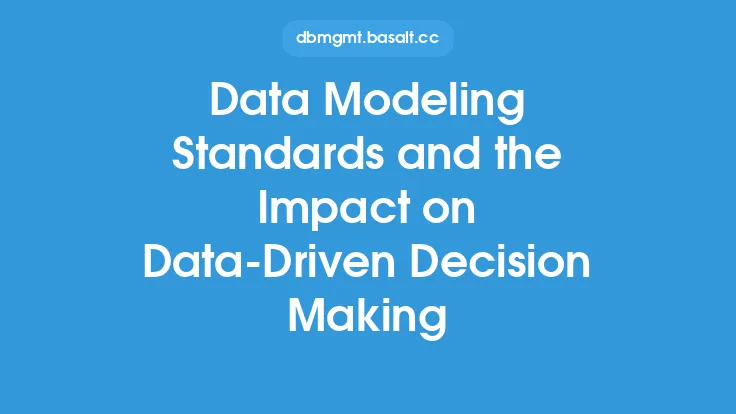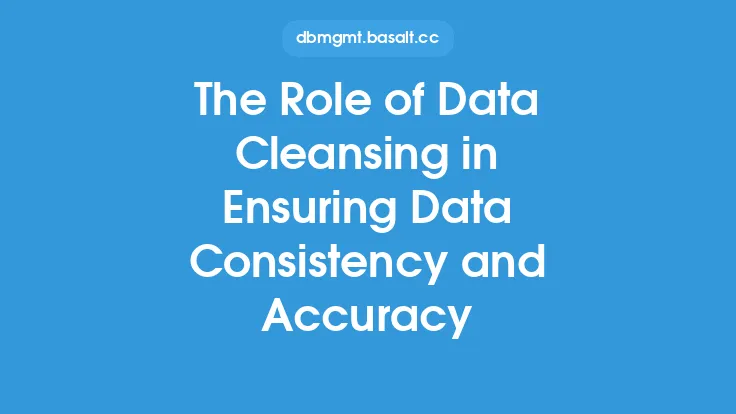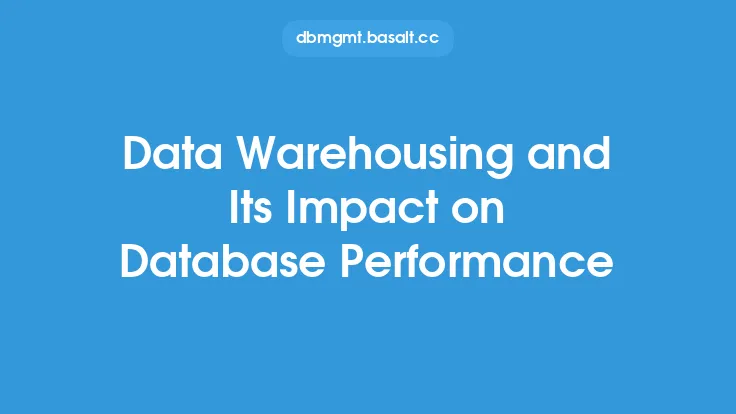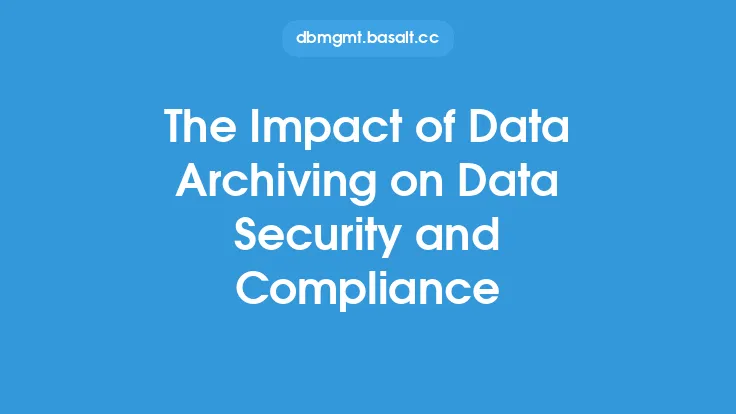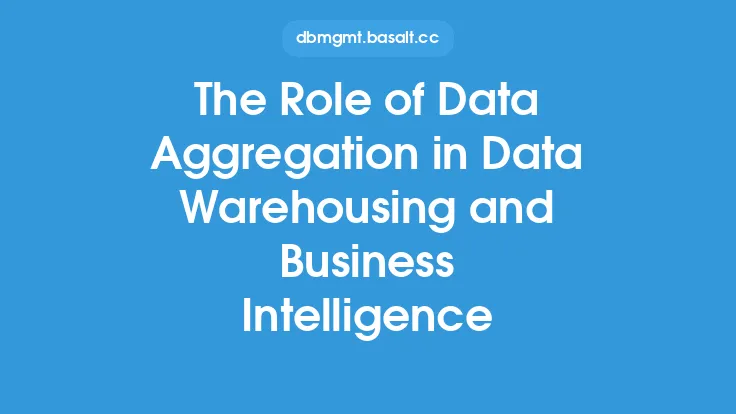Data analysis and decision making are crucial components of any organization, and the quality of the data used in these processes plays a significant role in determining their effectiveness. One of the key factors that can impact the quality of data is data cleansing, which involves identifying, correcting, and transforming inaccurate, incomplete, or inconsistent data into a more reliable and consistent format. In this article, we will explore the impact of data cleansing on data analysis and decision making, and why it is an essential step in the data management process.
Introduction to Data Cleansing
Data cleansing, also known as data scrubbing or data cleaning, is the process of detecting and correcting errors, inconsistencies, and inaccuracies in a dataset. This process involves identifying and correcting errors in data entry, formatting, and consistency, as well as handling missing or duplicate data. Data cleansing is an essential step in the data management process, as it ensures that the data used in analysis and decision making is accurate, complete, and consistent.
The Impact of Data Cleansing on Data Analysis
Data analysis is the process of extracting insights and patterns from data, and it relies heavily on the quality of the data used. Poor data quality can lead to inaccurate or misleading results, which can have significant consequences in business decision making. Data cleansing plays a critical role in ensuring that the data used in analysis is accurate and reliable. By correcting errors and inconsistencies, data cleansing helps to prevent errors in analysis, such as incorrect calculations or misleading trends. Additionally, data cleansing helps to improve the accuracy of predictive models and machine learning algorithms, which rely on high-quality data to make accurate predictions.
The Impact of Data Cleansing on Decision Making
Decision making is a critical component of any organization, and it relies heavily on the quality of the data used. Poor data quality can lead to poor decision making, which can have significant consequences, such as financial losses or damage to reputation. Data cleansing plays a critical role in ensuring that the data used in decision making is accurate and reliable. By providing accurate and consistent data, data cleansing helps to inform decision making and prevent errors. Additionally, data cleansing helps to improve the transparency and accountability of decision making, as it provides a clear and auditable trail of the data used in the decision-making process.
Technical Aspects of Data Cleansing
From a technical perspective, data cleansing involves a range of techniques and tools, including data profiling, data validation, and data transformation. Data profiling involves analyzing the data to identify patterns, trends, and errors, while data validation involves checking the data against a set of rules or constraints to ensure that it is accurate and consistent. Data transformation involves converting the data into a more suitable format for analysis or decision making. Additionally, data cleansing may involve the use of data quality metrics, such as data completeness, data consistency, and data accuracy, to measure the quality of the data and identify areas for improvement.
Benefits of Data Cleansing
The benefits of data cleansing are numerous and significant. By improving the quality of the data, data cleansing helps to improve the accuracy and reliability of analysis and decision making. Additionally, data cleansing helps to reduce the risk of errors and inconsistencies, which can have significant consequences in business decision making. Furthermore, data cleansing helps to improve the efficiency and effectiveness of analysis and decision making, as it provides a clear and consistent view of the data. Finally, data cleansing helps to improve the transparency and accountability of decision making, as it provides a clear and auditable trail of the data used in the decision-making process.
Challenges and Limitations of Data Cleansing
Despite the benefits of data cleansing, there are several challenges and limitations to consider. One of the main challenges is the complexity and volume of the data, which can make it difficult to identify and correct errors. Additionally, data cleansing requires significant resources and expertise, which can be a challenge for organizations with limited budgets or personnel. Furthermore, data cleansing may involve significant cultural and organizational changes, as it requires a shift in mindset and behavior towards data quality and management. Finally, data cleansing is an ongoing process, as data is constantly being generated and updated, and it requires continuous monitoring and maintenance to ensure that the data remains accurate and reliable.
Best Practices for Data Cleansing
To ensure that data cleansing is effective and efficient, there are several best practices to consider. One of the main best practices is to establish a data quality framework, which defines the standards and processes for data management and cleansing. Additionally, it is essential to identify and prioritize the most critical data elements, and to develop a data cleansing plan that addresses these elements. Furthermore, it is essential to use automated tools and techniques, such as data profiling and data validation, to streamline the data cleansing process. Finally, it is essential to monitor and maintain the data continuously, to ensure that it remains accurate and reliable over time.
Conclusion
In conclusion, data cleansing is a critical component of the data management process, and it plays a significant role in ensuring the quality and accuracy of data used in analysis and decision making. By correcting errors and inconsistencies, data cleansing helps to prevent errors in analysis and decision making, and it improves the accuracy and reliability of predictive models and machine learning algorithms. Additionally, data cleansing helps to improve the transparency and accountability of decision making, as it provides a clear and auditable trail of the data used in the decision-making process. While there are several challenges and limitations to consider, the benefits of data cleansing are numerous and significant, and it is an essential step in the data management process.

